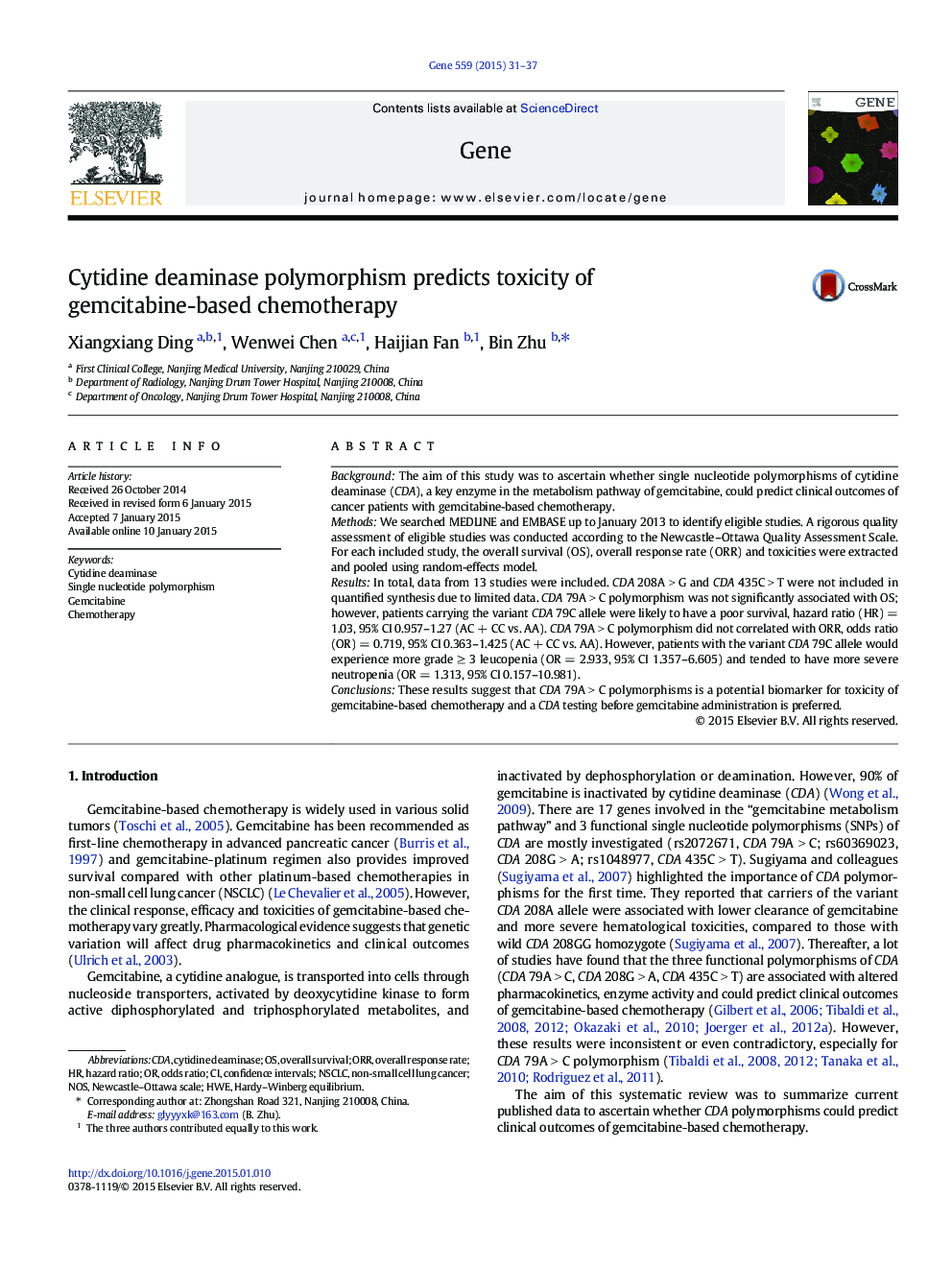| Article ID | Journal | Published Year | Pages | File Type |
|---|---|---|---|---|
| 2815959 | Gene | 2015 | 7 Pages |
•We performed a meta-analysis to investigate the predictive value of CDA polymorphism for gemcitabine-based chemotherapy.•CDA 79A > C polymorphism is associated with grade 3 leucopenia and neutropenia.•CDA 79A > C polymorphism does not correlate with survival or response to chemotherapy.
BackgroundThe aim of this study was to ascertain whether single nucleotide polymorphisms of cytidine deaminase (CDA), a key enzyme in the metabolism pathway of gemcitabine, could predict clinical outcomes of cancer patients with gemcitabine-based chemotherapy.MethodsWe searched MEDLINE and EMBASE up to January 2013 to identify eligible studies. A rigorous quality assessment of eligible studies was conducted according to the Newcastle–Ottawa Quality Assessment Scale. For each included study, the overall survival (OS), overall response rate (ORR) and toxicities were extracted and pooled using random-effects model.ResultsIn total, data from 13 studies were included. CDA 208A > G and CDA 435C > T were not included in quantified synthesis due to limited data. CDA 79A > C polymorphism was not significantly associated with OS; however, patients carrying the variant CDA 79C allele were likely to have a poor survival, hazard ratio (HR) = 1.03, 95% CI 0.957–1.27 (AC + CC vs. AA). CDA 79A > C polymorphism did not correlated with ORR, odds ratio (OR) = 0.719, 95% CI 0.363–1.425 (AC + CC vs. AA). However, patients with the variant CDA 79C allele would experience more grade ≥ 3 leucopenia (OR = 2.933, 95% CI 1.357–6.605) and tended to have more severe neutropenia (OR = 1.313, 95% CI 0.157–10.981).ConclusionsThese results suggest that CDA 79A > C polymorphisms is a potential biomarker for toxicity of gemcitabine-based chemotherapy and a CDA testing before gemcitabine administration is preferred.
